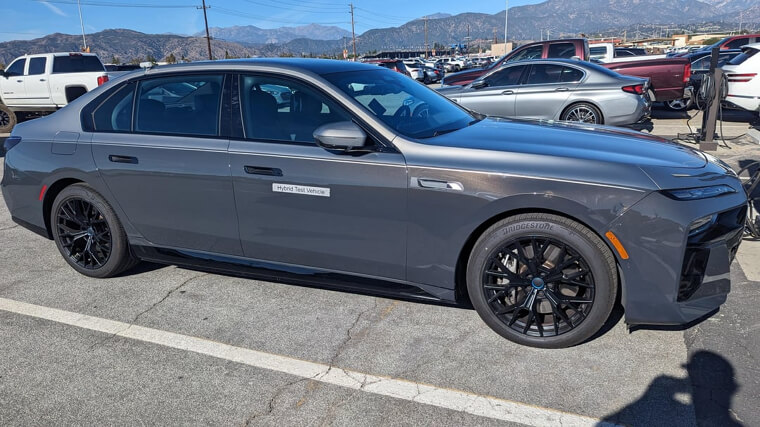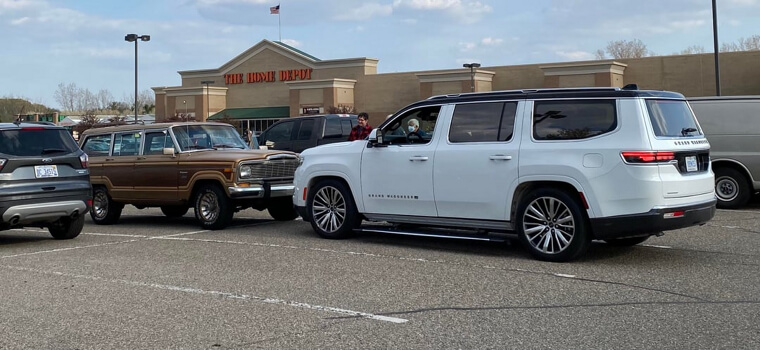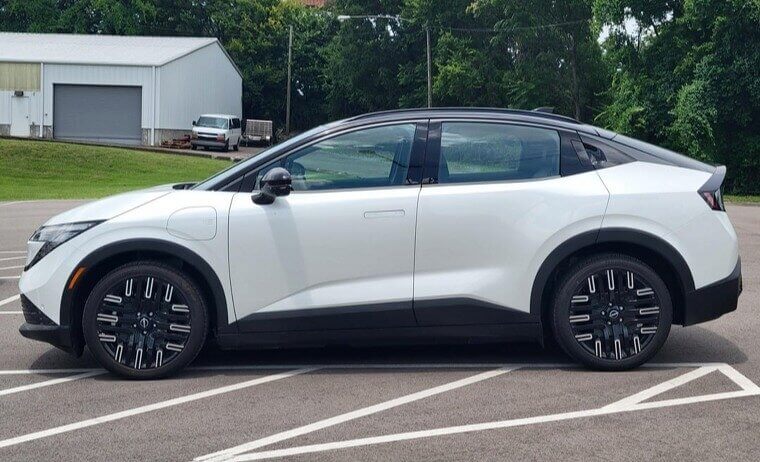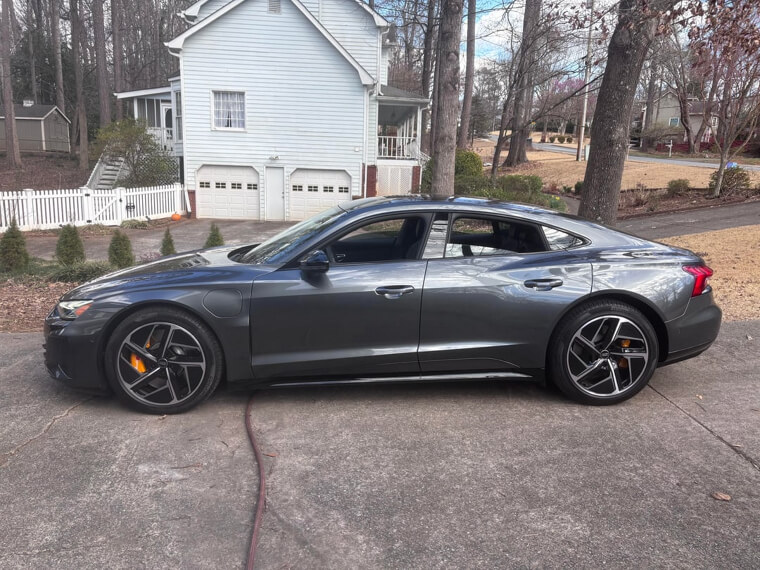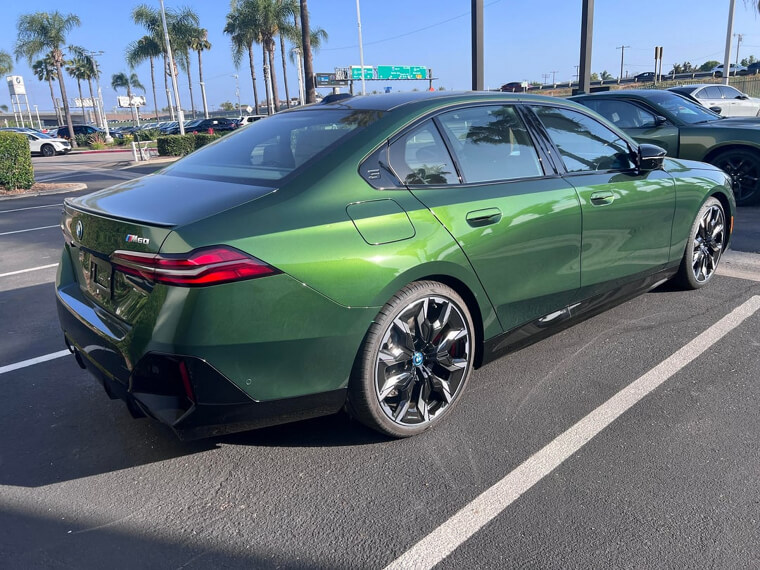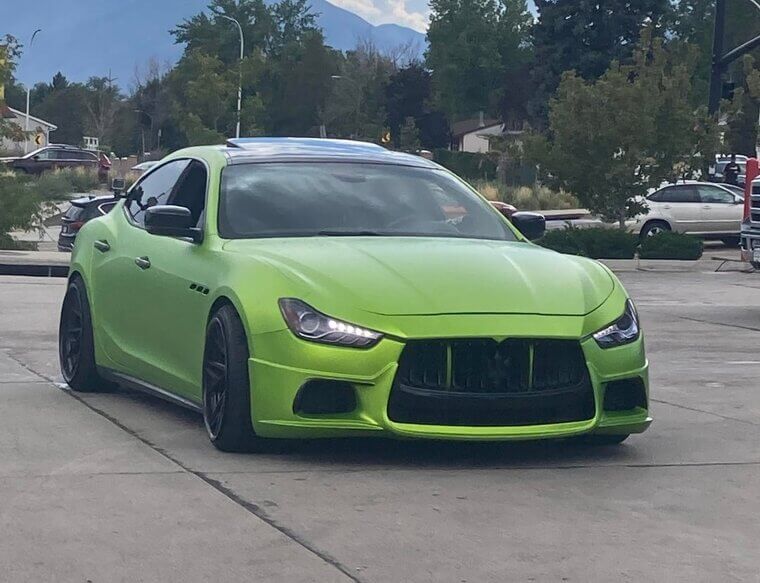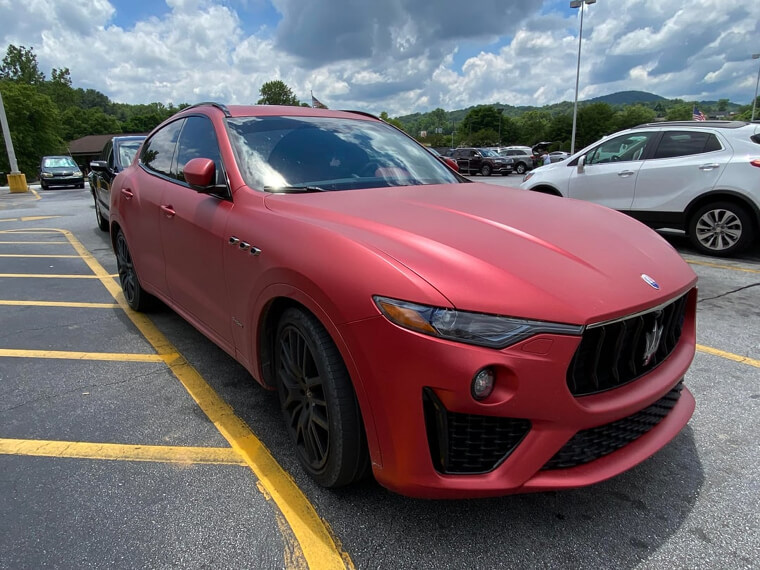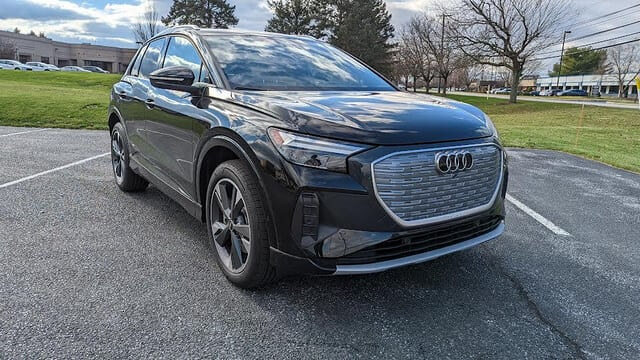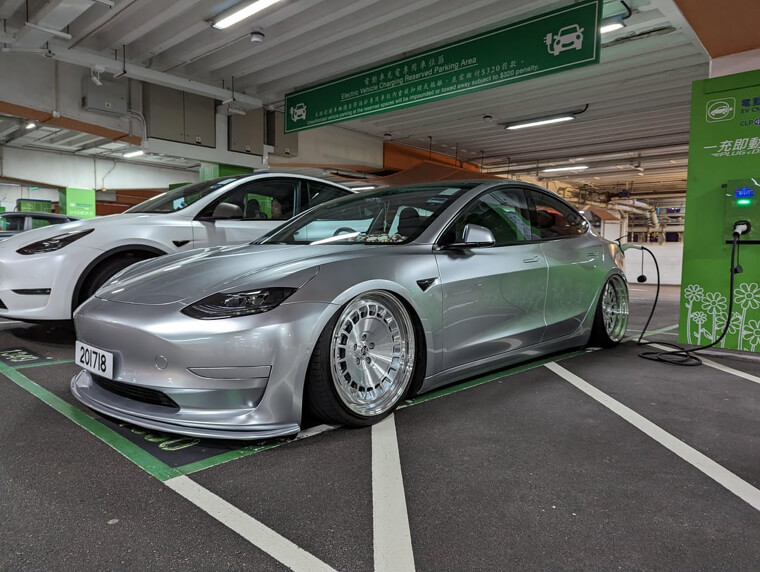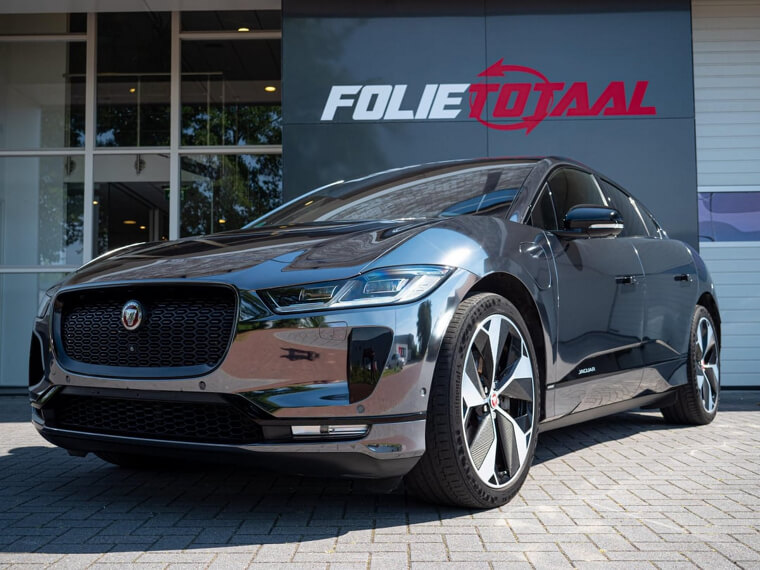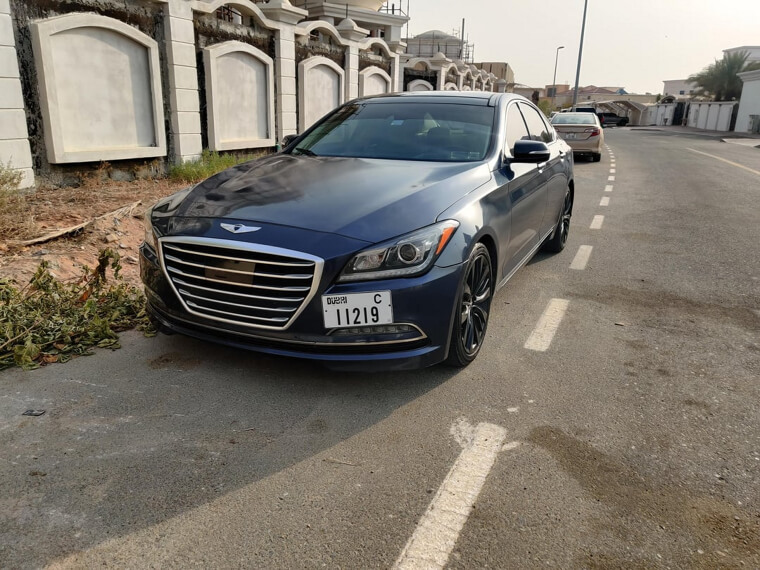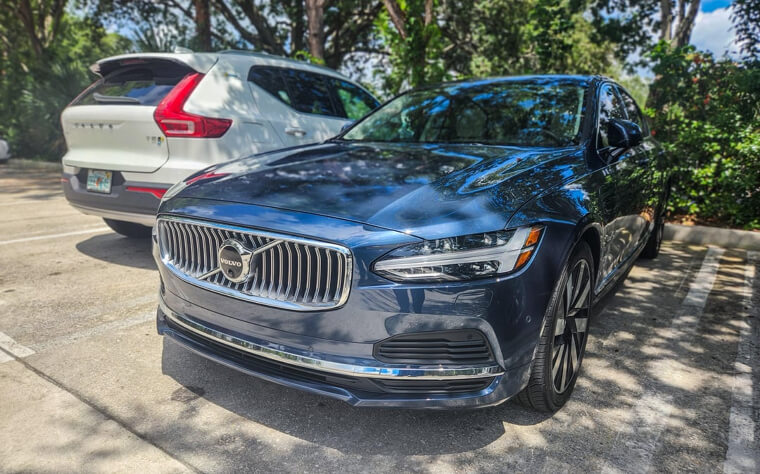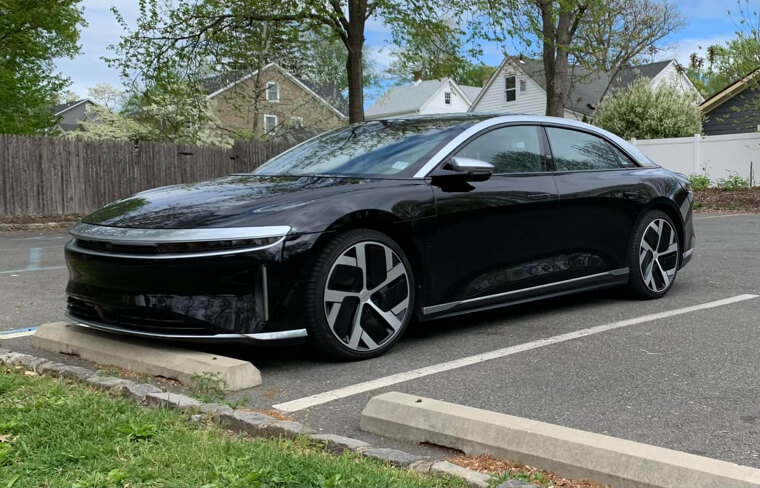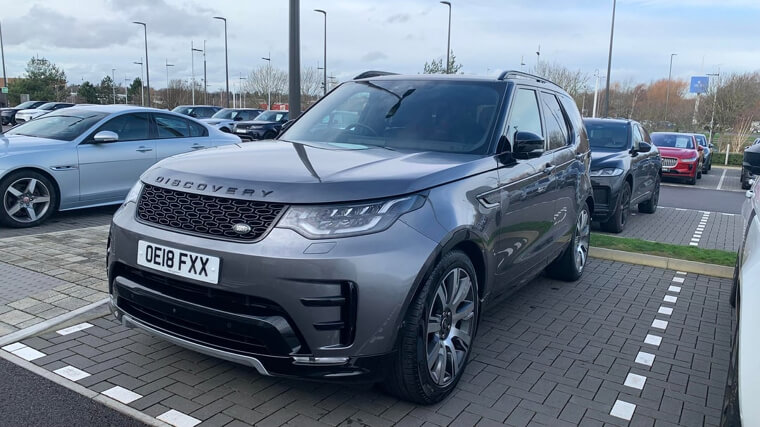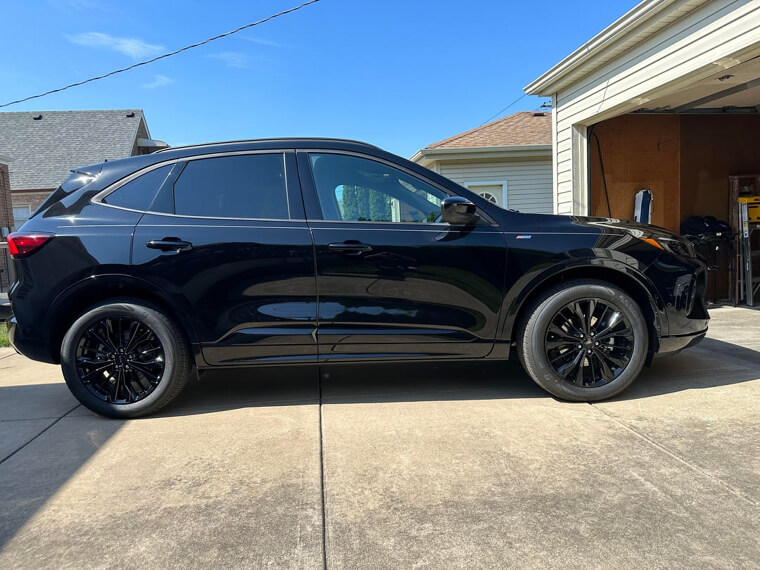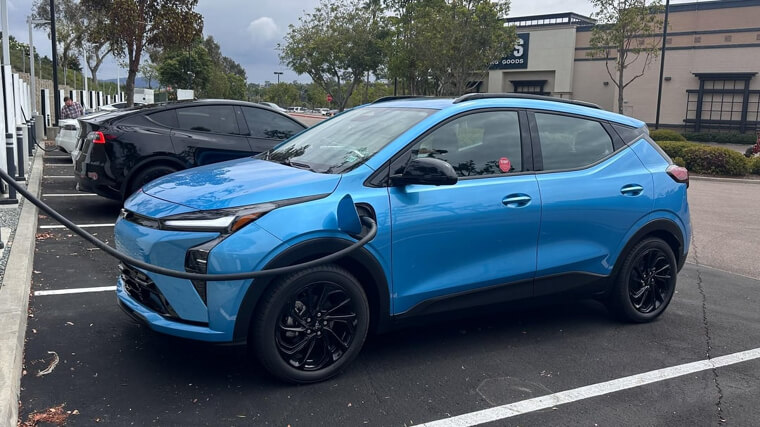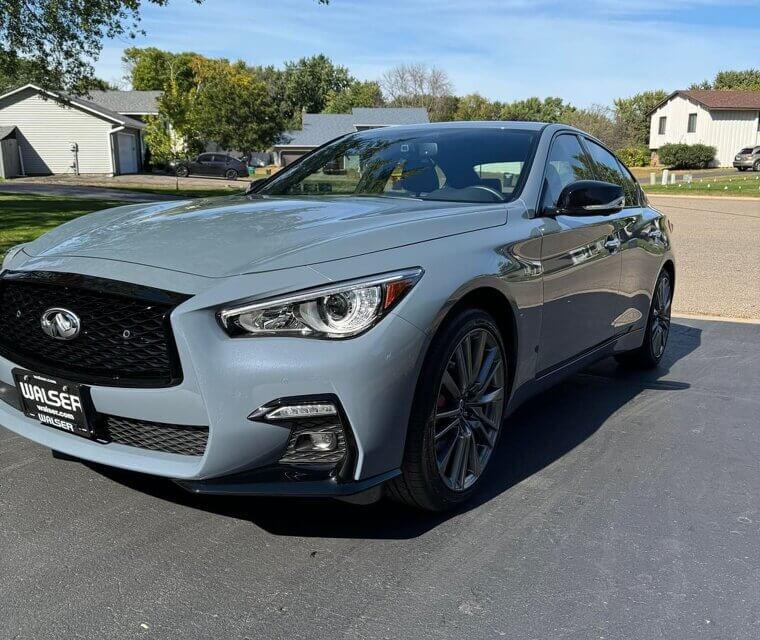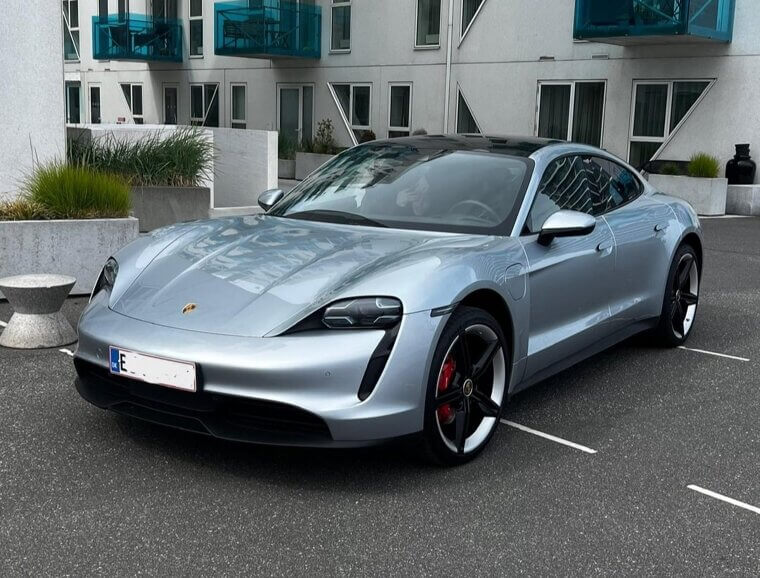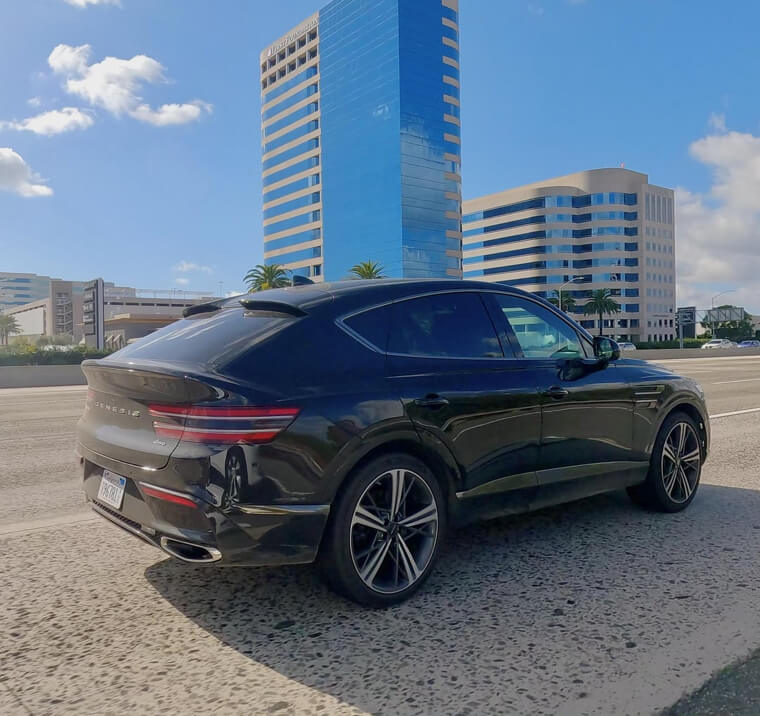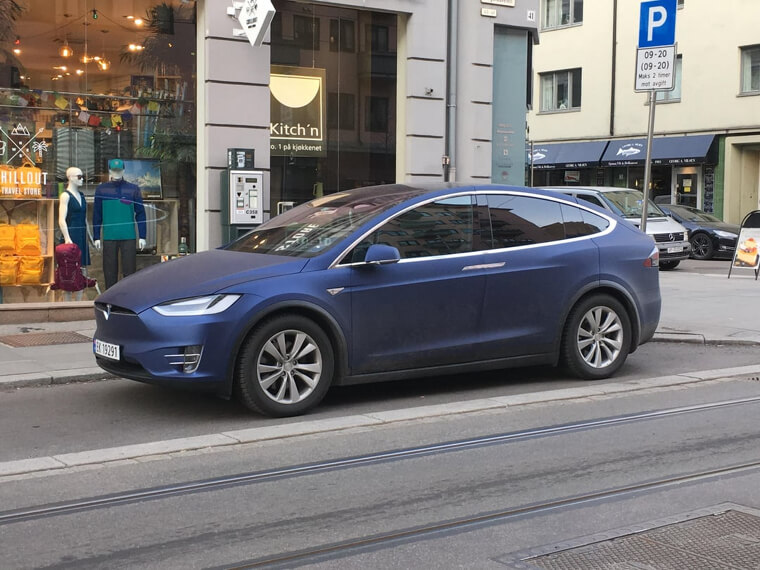BMW 7 Series
Luxury sedans have struggled in the used market, and the BMW 7 Series is a prime example. Once a flagship of executive comfort, it now faces a shrinking buyer pool as more drivers prefer SUVs. The high cost of maintenance and complex electronics make it less appealing to second owners. Many examples have lost 40 to 50 percent of their value in only a few years. For luxury car enthusiasts, it is a reminder that even prestige brands can suffer when demand shifts toward newer, more practical body styles.
Jeep Grand Wagoneer
Jeep’s luxury flagship, the Grand Wagoneer, entered the market with excitement but has quickly lost ground in resale value. High fuel costs, complex technology, and stiff competition from European luxury SUVs have all hurt demand. Buyers looking for used luxury SUVs are often wary of long-term maintenance and fuel expenses. In 2025, the Grand Wagoneer’s resale value dropped faster than anticipated, making it one of the biggest depreciators in its class. Despite its impressive size and features, it has proven less resilient in value retention than Jeep expected.
Nissan Leaf
The Nissan Leaf has been a pioneer in electric mobility, but technology has moved on faster than its design. Limited range and early-generation battery packs make older Leafs less desirable in 2025. Many buyers now prefer newer EVs with longer driving distances and improved charging capabilities. That shift has caused older Leafs to lose much of their resale value, with some models worth less than half of what they cost only a few years ago. While still efficient and practical, the Leaf’s aging technology has hurt its place in the used market.
Audi E-Tron GT
The Audi e-tron GT turned heads when it launched, but owners have faced disappointing resale numbers in 2025. The luxury EV market is evolving so quickly that early models feel outdated after only a few years. Buyers now expect longer range and faster charging than the GT originally offered. As a result, resale prices have fallen sharply, with some losing nearly half their original value. Despite its performance and style, rapid technological change has made this once-premium electric sedan one of the steepest depreciators of the year.
BMW 5 Series
The BMW 5 Series remains a respected nameplate, but 2025 was a rough year for its resale value. With newer models offering upgraded infotainment, hybrid options, and sleeker styling, older versions quickly lost appeal. Buyers looking for used luxury sedans have plenty of choices, which pushes down prices even further. Dealers have reported heavier depreciation than expected, particularly on higher trims. While the 5 Series still delivers a refined driving experience, the used market no longer rewards it as strongly as it once did.
Maserati Ghibli
The Maserati Ghibli’s sleek looks and exotic badge promise exclusivity, but ownership costs tell another story. Maintenance and repair bills remain high, and reliability concerns have scared off many used buyers. The result has been a sharp fall in resale value during 2025. While the Ghibli still turns heads, many pre-owned models now sell for a fraction of their original price. It remains a car that appeals to the heart rather than the wallet, and its resale performance reflects the risks of buying niche European luxury sedans.
Maserati Levante
The Maserati Levante entered the luxury SUV market with high expectations, but its resale value has slipped significantly. Expensive upkeep and competition from better-equipped rivals like BMW and Porsche have hurt demand for used models. Buyers often see the Levante as a stylish choice but an impractical one for long-term ownership. By 2025, many examples have lost more than 45 percent of their value. Even with Italian flair and power under the hood, the Levante could not escape the depreciation trend affecting luxury SUVs across the board.
Audi E-Tron SUV
Audi’s original e-tron SUV helped bring luxury EVs into the mainstream, but newer models with better range and software updates have quickly overshadowed it. In 2025, used prices dropped faster than many expected, leaving early adopters frustrated. Battery efficiency and technology upgrades in later vehicles made the original e-tron feel outdated. Buyers who prioritize range and charging speed now skip these earlier models. While still comfortable and well-built, the e-tron SUV illustrates how fast depreciation can hit first-generation electric vehicles.
Tesla Model S (early Models)
Tesla continues to innovate, but that constant progress has left older Model S cars behind. Early models lack the range, charging speed, and driver-assist features found in newer versions. As buyers seek the latest software and battery improvements, resale prices for older Model S vehicles have dropped by as much as 50 percent. Maintenance costs for aging EVs also add to the problem. Once a symbol of cutting-edge technology, the older Model S is now a reminder that early electric adopters pay the highest depreciation costs.
Jaguar I-PACE
The Jaguar I-PACE arrived as one of the first luxury electric SUVs, but its value has not aged well. Despite strong performance and stylish design, early examples have dropped significantly in price. Battery degradation concerns, expensive repairs, and rapid EV innovation have pushed buyers toward newer options. Dealers report that used I-PACE models are hard to move without deep discounts. Once a flagship for Jaguar’s electric ambitions, it now sits among the worst depreciating vehicles of 2025 as luxury EV competition intensifies.
Genesis G80
The Genesis G80 earned praise for comfort and design, yet it has suffered steep depreciation. Luxury sedans in general have seen demand fall, but Genesis faces the additional challenge of being a newer brand with limited resale recognition. Even though the car rivals German competitors in quality, used buyers remain hesitant. Many 2022 and 2023 models are selling far below expected prices. Strong value when new does not always translate into high resale figures, and the G80’s drop in 2025 shows that reputation still matters in the luxury market.
Volvo S90
Volvo’s elegant S90 offers Scandinavian design and safety, but resale numbers tell a different story. The luxury sedan market has weakened, and many used buyers prefer Volvo’s SUVs instead. As a result, 2025 saw a steep drop in used prices for the S90, with depreciation near 40 percent in some regions. Owners who once valued its quiet comfort now find fewer interested buyers. Although it remains stylish and dependable, shifting consumer tastes have left the S90 behind in resale rankings this year.
Lucid Air
The Lucid Air impressed critics with its luxury features and record-breaking range, but resale data for 2025 shows significant depreciation. Buyers worry about long-term support from a newer automaker, which affects confidence in the used market. Even lightly used examples have sold for tens of thousands less than their original price. As the EV market becomes crowded with established competitors, newer brands face difficulty maintaining resale strength. The Lucid Air remains a technological marvel, but its resale performance demonstrates the growing pains of emerging electric manufacturers.
Land Rover Discovery
Land Rover vehicles are known for their capability and prestige, but they often depreciate faster than rivals. The Discovery in particular lost value quickly in 2025 due to reliability concerns and high ownership costs. Many buyers still love its off-road ability, yet few want to deal with potential repair bills once warranties expire. This fear of maintenance expenses has kept resale prices low. The Discovery remains luxurious and distinctive, but its depreciation reinforces the challenges that come with owning complex, high-end SUVs.
Ford Escape Hybrid
Compact SUVs usually retain value well, but the Ford Escape Hybrid took a hit in 2025. Newer models with better technology and fuel economy made older versions less appealing. Many buyers turned toward all-electric options or more modern hybrids from Toyota and Hyundai. As demand weakened, resale values dropped faster than expected. Despite its practicality and solid reliability, the Escape Hybrid lost more value than similar compact crossovers, highlighting how fast the market moves when new, more efficient vehicles arrive.
Chevrolet Bolt EV
The Chevrolet Bolt EV helped make electric driving accessible, but in 2025 its resale value has plunged. Battery recalls and newer EV competition have hurt confidence in used models. Even with solid performance, buyers hesitate due to concerns about range and long-term reliability. The flood of newer, longer-range EVs has pushed used prices for older Bolts down sharply. For many owners, the car still offers great value to drive, but financially, it ranks among the biggest depreciation losses of the year.
Infiniti Q50
The Infiniti Q50 has struggled to hold its value as luxury buyers shift to SUVs and EVs. Once positioned as a sporty sedan with strong performance, it now competes in a shrinking segment. Used models in 2025 are selling well below expectations, and high maintenance costs further discourage second owners. While it remains a comfortable and capable car, the lack of major updates has hurt its appeal. The Q50’s steep value decline underscores the challenges facing traditional luxury sedans in a changing market.
Porsche Taycan (early Models)
The Porsche Taycan remains an exciting electric sports sedan, but its earliest versions have seen notable depreciation. Rapid advances in battery performance and efficiency have made newer Taycans more desirable. Buyers now seek updated models with improved range, leaving older ones lagging. Some first-generation Taycans have lost 40 percent of their value since launch. Despite its strong driving dynamics and Porsche craftsmanship, it shows how even top-tier electric cars can depreciate quickly when innovation moves faster than resale markets can keep up.
Genesis GV80
Genesis has impressed the luxury SUV market, but its flagship GV80 faced unexpected depreciation in 2025. Strong competition from BMW, Lexus, and Mercedes has limited its used-market demand. Buyers also remain cautious about long-term brand reputation, which affects resale confidence. Even though the GV80 offers standout design and value when new, it loses ground quickly once out of warranty. The depreciation reflects the challenge newer luxury brands face when competing against long-established names with stronger resale histories.
Tesla Model X
The Tesla Model X, once a status symbol among luxury SUVs, faced declining resale values in 2025. The pace of EV improvement has made early examples less competitive in range and software features. Buyers also report high maintenance costs for older models and wear issues with the complex falcon-wing doors. Newer electric SUVs with similar performance but lower prices have hurt its used value. The Model X remains technologically impressive, but depreciation has hit it harder than Tesla owners anticipated just a few years ago.

